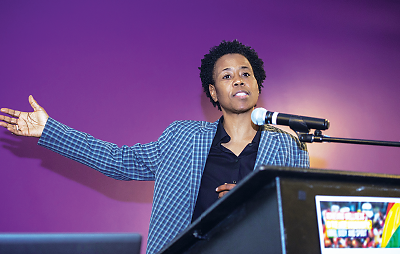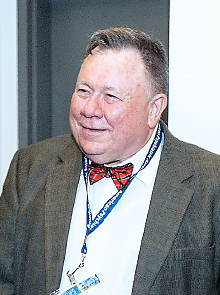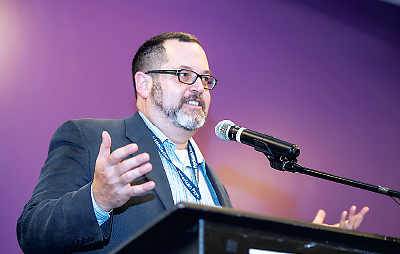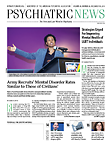Although some state and federal laws are bringing the same rights and protections to individuals who identify as lesbian, gay, bisexual, or transgender (LGBT) that other Americans have, LGBT leaders say that the community as a whole has a long road ahead to achieving total wellness.
At the APA Institute on Psychiatric Services (IPS) in San Francisco this fall, mental health experts and LGBT community leaders discussed what needs to be done to promote health and well-being for LBGT people. The event was organized by the APA Division of Diversity and Health Equity.
“Last time we focused on wellness in the LGBT community in depth, we were in Boston at an IPS meeting in 2010,” said Division Director Annelle Primm, M.D., M.P.H., in welcoming the program attendees. “Then, we focused on a research track that related to issues concerning LGBT populations. … This time we are holding another [research] track as well as a community event.”
That event, which was held at the San Francisco LGBT Center and open to anyone in the community, featured Darlene Nipper, M.A., deputy executive director of the National Gay and Lesbian Task Force, as keynote speaker.
“I want to frame things around the experiences of LGBTQ people ... and some of the factors that are affecting our well-being,” Nipper said. “While we have made great strides in securing civil rights for our community, as many as 40 percent of LGBTQ youth may be homeless,” she stated, “and they are 5.9 times more likely to commit suicide than their heterosexual peers.” She pointed out as well that “transgender women have an extremely high risk of being murdered, particularly transgender women of color.”
Nipper said that for the LGBT community to achieve total wellness, its members must come together as a whole and with LGBT allies such as APA to continue to push for laws and enforcement of laws that protect the civil liberties of LGBT people.
“We have lived through a lot of discrimination, hatred, bigotry, and stigma,” commented Nipper in an interview with Psychiatric News. “So it takes us working together to address some of the laws and systems that are in place that still hold us back and ensure that we are educating the rest of society on these concerns as well.”
Jei Africa, Psy.D., director of Health Equity Initiatives at the San Mateo Behavioral Health and Recovery Services, agreed.
“I pushed for [better] workplace systems that are more welcoming of people who are very diverse,” Africa told Psychiatric News. During the IPS forum, Africa, who served as a guest panelist, related his story of transitioning from a woman to a man while working in a clinical setting in a conservative area of Northern California. Africa emphasized that while people in the process of transitioning to the other gender have a lot of work to do as they adjust to the substantial changes, it also takes workplace systems to transition from an out-of-date system to a more welcoming and inclusive one to enhance workers’ mental well-being.
“We have to investigate whether a workplace is creating policies that are inclusive [and if] medical forms [for patients] are inclusive,” Africa told Psychiatric News. “Does the workplace have gender-neutral bathrooms? And how does the workplace deal with people who have a preferred gender pronoun, without assigning a specific gender pronoun based on a person’s looks?” Africa stressed that these concerns related to inclusivity of diverse populations should not be restricted to areas in which transgender people work or are being treated, but should be of concern to the infrastructure of any workplace.
After the forum, program moderator Dan Karasic, M.D., a clinical professor of psychiatry at the University of California, San Francisco, and a co-editor of Sexual and Gender Diagnoses of the Diagnostic and Statistical Manual (DSM): A Reevaluation, said that the issues that were discussed at the event created a spirit of optimism for the LGBT population and its relationship with the general public.
“People should have learned that the LGBTQ community is a very diverse community, not only in being LGBTQ but also in term of past experiences and ethnicities. Getting all of the different perspectives from the panel was very educational for everyone. I was very moved by all that was said today,” Karasic concluded. ■




